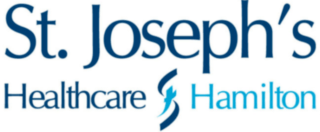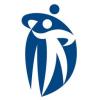Nurse Practitioner Renal Program
Job Description
POSITION SUMMARY:
Nurse Practitioners competencies build and expand upon the competencies of RNs in the General Class. NPs have, and demonstrate in practice, the competencies to use their legislated authority to diagnose, order and interpret diagnostic tests, prescribe pharmaceuticals and perform procedures.
NPs may practice in a wide range of practice settings, including hospital in-patients, out-patient clinics and community-based clinics. In all settings, the focus of practice is health promotion, and the treatment of health conditions by supportive, preventative, therapeutic, palliative and rehabilitative means in order to attain or maintain optimal functioning (Nursing Act 1990).
All NPs collaborate with physicians, other members of the inter-professional team, patients and families to provide evidence-informed care that is grounded in professional, ethical and legal standards. The NP integrates his/her in-depth knowledge of advanced nursing practice and theory, health management, health promotion, disease/injury prevention and other relevant biomedical and psychosocial theories to provide comprehensive and patient/family centered care. NP practice is characterized by the simultaneous integration and blending of competencies at a level of complexity that reflects the NP's highly developed critical thinking skills, clinical nursing experience, and advanced education.
QUALIFICATIONS:
-Masters in Nursing/Nurse Practitioner (MN-NP) or Masters of Science in Nursing with successful completion of a post Master's Acute Care Nurse Practitioner Certificate Program from a recognized school of graduate studies required
OR
-Completion of NP-PHC program (Baccalaureate level ) prior to 2000 from an accredited university program and a Masters in Nursing (alternatively, Masters in relevant health care field)
-Appointment or eligible for appointment with a School of Nursing in an academic institution
-Mandatory Liability Insurance that meets CNO requirements for NPs (=$5million dollar coverage per setting)
-Regulated health professional registered with the College of Nurses of Ontario registration in the RN (EC) class with no restrictions on registration or professional practice hearings pending.
-Current BCLS/HCP certification required
-Experience working in an acute care setting, tertiary level and teaching organization, preferred.
-Successful completion of a CNO-approved course to legally enable prescribing of controlled substances
-Demonstrated knowledge, sensitivity and expertise in the care of seniors and their families
-Gentle Persuasive Approach training is preferred
-Demonstrated clinical excellence and expertise in the specified clinical service area of hire
-Demonstrated leadership, self-directed, decision-making and problem-solving skills
-Demonstrated knowledge of legislative and ethical responsibilities relating to scope of practice and healthcare
-Demonstrated excellence in interpersonal and customer service skills
-Demonstrated effective conflict management/ resolution skills
-Demonstrated data management for evaluation, interpretation and process change.
NEPHROLOGY SPECIFIC QUALIFICATIONS:
-1-3 years of demonstrated experience as a Nurse Practitioner required
-3-5 years of relevant Nephrology, Transplant or Acute medicine experience
-CNA Certification in Nephrology preferred
-Additional specialty education in Advanced Wound Care Management preferred
NEPHROLOGY SPECIFIC RESPONSIBILITIES:
-The support NP provides interim coverage within all areas of the renal program including Hemodialysis, Inpatient Nephrology and Renal Transplant Clinic as coverage is required for various types and lengths of current NP leaves.
-Each renal setting includes management of primary patient load and collaboration with respective Nephrologists and allied health care teams.
OVERALL RESPONSIBILITIES:
-Practices in accordance with federal and provincial/territorial legislation, CNO standards of practice and guidelines, and SJHHs policies.
-Incorporates knowledge of diversity, cultural safety and determinants of health in the assessment, diagnosis and therapeutic management of patients/families/clients and in the evaluation of outcomes.
-Incorporates knowledge of developmental and life stages, pathophysiology, psychopathology, epidemiology, environmental exposure, infectious diseases, behavioural sciences, demographics and family processes when performing health assessments, making diagnoses and providing overall therapeutic management.
-Incorporates knowledge of the clinical manifestations of normal health events, acute illness/injuries, chronic diseases, comorbidities and emergency health needs, including the effects of multiple etiologies in the assessment, diagnosis and therapeutic management of patients/families/clients and in the evaluation of outcomes.
-Provides patient/client diagnostic information and education that are relevant, theory-based and evidence-informed, using appropriate teaching/learning strategies.
-Promotes safe client care by mitigating harm and addressing immediate risks for patients/families/clients and others affected by adverse events and near misses.
-Documents clinical data, assessment findings, diagnoses, plans of care, therapeutic interventions, patient/family/client responses and clinical rationale in a timely and accurate manner.
-Formulates differential diagnoses, orders and/or performs screening and diagnostic investigations, interprets results using evidence-informed clinical reasoning and critical inquiry, and assumes accountability or follow-up as per legislative scope of practice.
-Prescribes pharmacotherapy, within the NP scope of practice, based on the patient's/client's health history, health problem/disease, disorder, condition or life stage, and individual circumstances. Counsels patients/clients and their families on the benefits, potential side effects, interactions and the importance of compliance with treatments, medications and follow-up as per legislative scope of practice.
-Treats and manages acute and chronic illness within a holistic and client/family-centred model of care. Anticipates and diagnoses emergent, urgent and life-threatening situations within the NP legislated scope of practice.
-Consults with and/or refers clients to other healthcare providers at any point in the care continuum when the clients condition is not within the nurse practitioner scope of practice or the individual nurse practitioners competence.
-Engages in evidence-informed practice by critically appraising and applying relevant research, best practice guidelines and theory when providing healthcare services. The NP may be a primary investigator, co-investigator and/or a member of the research team, stimulating research activities, the results of which may be applied in clinical practice or influence public policy.
-Develops, utilizes and evaluates processes within the practice setting to ensure that patients/families/clients receive coordinated health services that identify patient/client outcomes and contribute to knowledge development.
-Identifies and implements research-based innovations for improving patient/family/client care at the individual, organizational and systems levels. As a researcher, the NP strengthens the link between research and clinical practice by facilitating the understanding and application of research. For every practice change, the NP reviews existing research evidence and provides expert opinion to determine the most effective application of a specific practice.
-Identifies, collects data on, and evaluates the outcomes of, NP practice for patients/families/clients and the health-care system.
-Engages in evidence-informed practice by critically appraising and applying relevant research, best practice guidelines and theory when providing health-care services.
-Identifies research questions, conducts research, and implements research-based innovations for improving patient/client/family care at individual, organizational and systems levels. --Integrates best practice guidelines and current evidence-informed research into clinical practice.
-Promotes a positive learning environment for patients/clients/ families, nurses, nursing students and other health care provider learners.
-Demonstrates leadership in the provision of educational programs for individuals and groups including patients/clients, families, colleagues, students and health care organizations.
-Promotes an environment of inquiry and ongoing quality improvement
-Demonstrates expertise in his/her clinical specialty and functions as a preceptor, mentor, tutor, client educator, planner, and evaluator of educational programs.
-Supports direct care providers by providing clinical teaching, promoting evidence-based practice, and providing resources that will address unmet learning needs.
-Demonstrates clinical leadership as a change agent through knowledge translation and the dissemination of new knowledge. This may include formal and informal presentations, publications, discussions, quality improvement initiatives or the integration of best practice guidelines and policies.
-Qualifies, applies for and maintains a University faculty appointment.
-Provides clinical leadership by developing, implementing, and evaluating educational initiatives.
-Identifies patient and family knowledge gaps and leads educational initiatives designed to address these gaps.
-Provides leadership in the management of clinical care and is a resource person, educator and role model.
-Acts as a preceptor, mentor and coach to nursing colleagues, other members of the health-care team and students.
-ability to travel and work at all SJHH sites and Hemodialysis Units including Charlton campus, King Campus, Brantford campus and Six nations campus.
St. Josephs Nursing Vision is to make a difference in the lives of those we care for, our organization, and the future of our community through achievement of excellence in nursing and commitment to a culture of nursing innovation, empowerment, leadership and accountability.
MNCJobz.com will not be responsible for any payment made to a third-party. All Terms of Use are applicable.
Job Detail
-
Job IdJD2295886
-
IndustryNot mentioned
-
Total Positions1
-
Job Type:Full Time
-
Salary:Not mentioned
-
Employment StatusPermanent
-
Job LocationHamilton, ON, Canada
-
EducationNot mentioned

